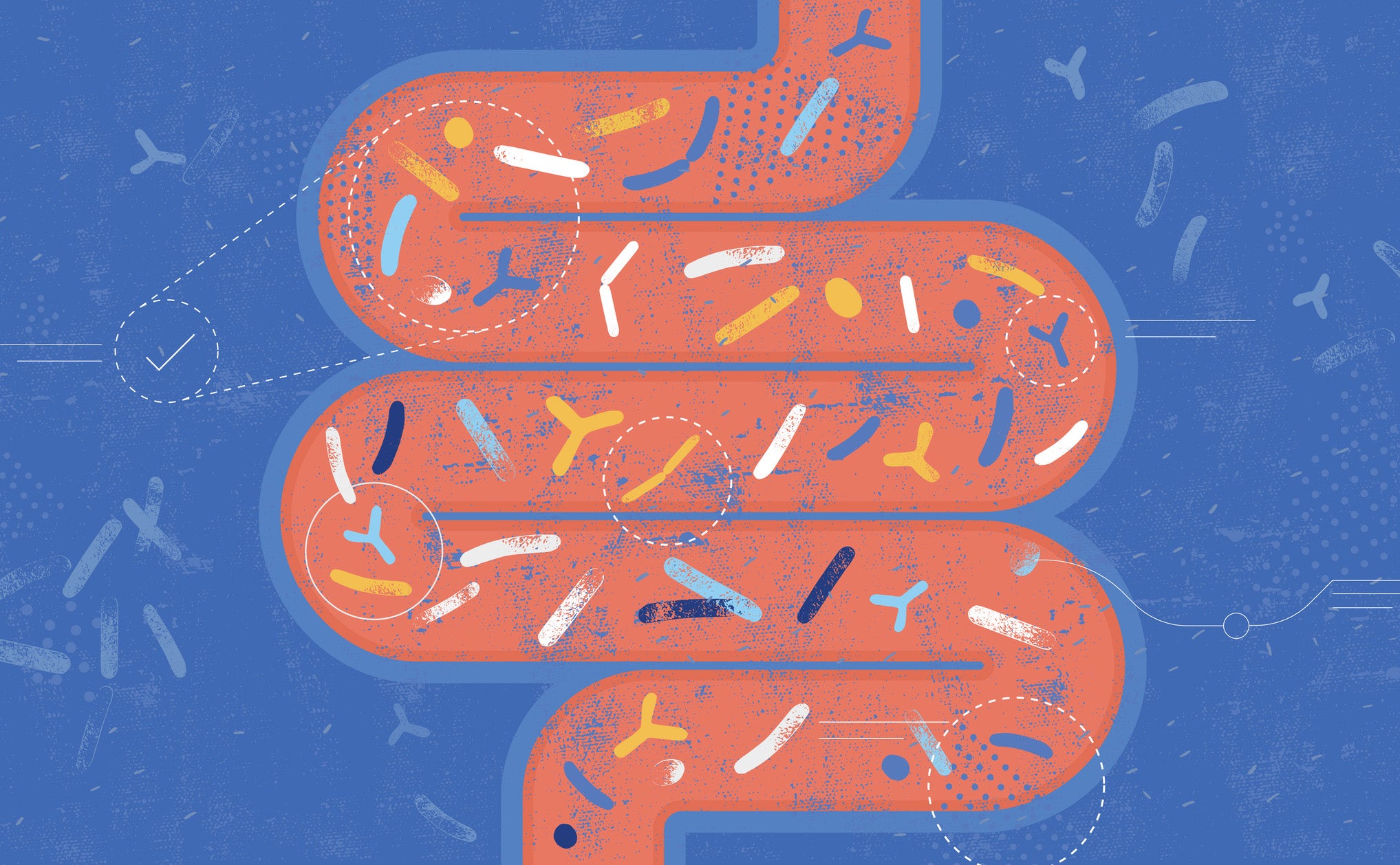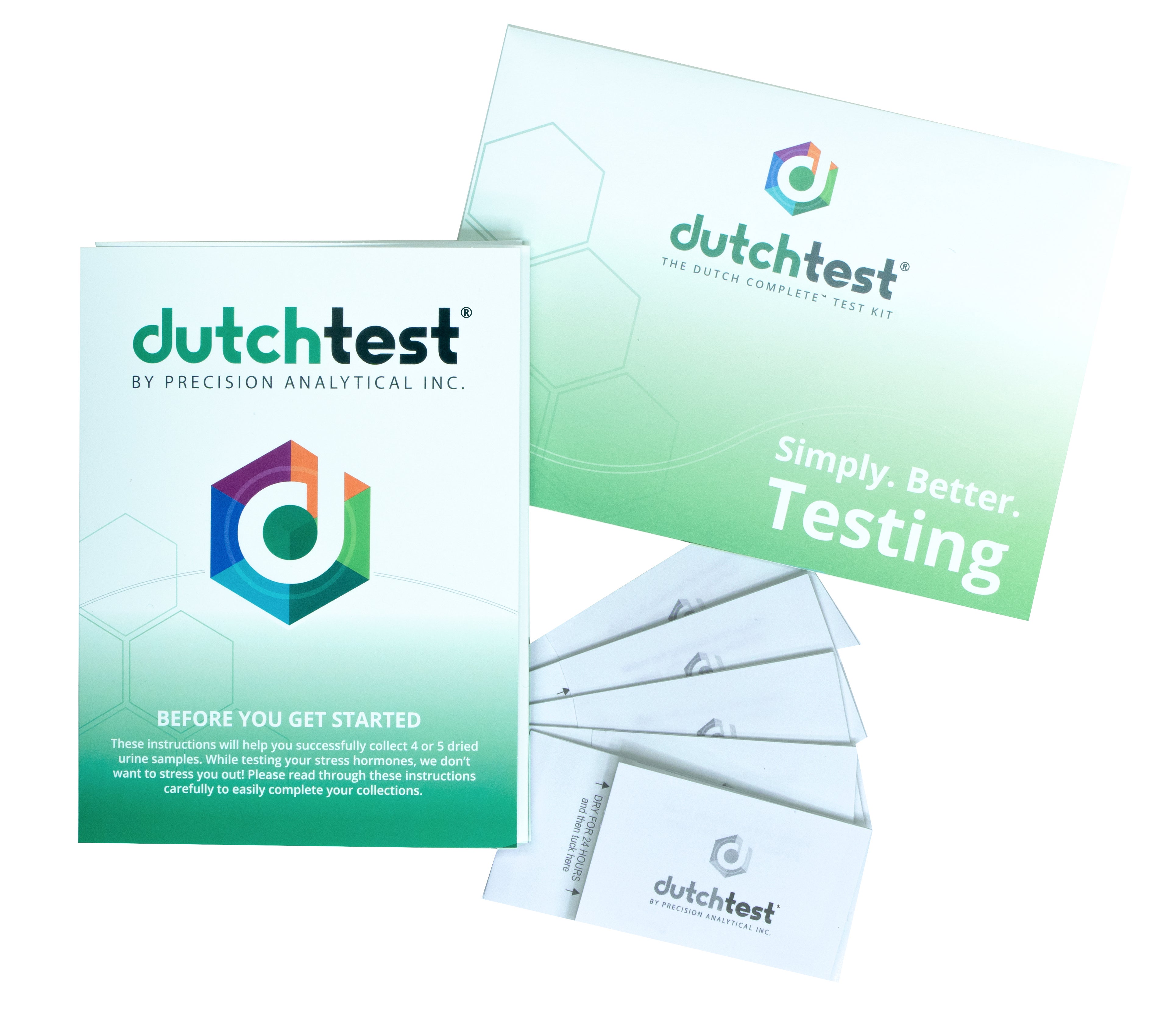For the best gut health, is it time to ditch Zoe and go DUTCH?
Professor Tim Spector has revolutionised midlife health, but many people are now swearing by a new method which looks at how our hormones are affecting our microbiome too. Isobel Mohan reports

Professor Tim Spector’s Zoe nutrition test has been an unprecedented success. With celebrity endorsements from the likes of Steve Barlett and Davina McCall, it has become a midlife must-have accessory. Currently, hundreds of thousands of people are joining the waiting list to get their hands on the pricey patch to stick on their arm which monitors blood sugar, potentially revealing underlying gut health issues affecting weight, mood and sleep.
The enormous success of Zoe has now accelerated a trend for personalised health tech that goes way beyond what our smartwatches can tell us, venturing deep into physiology to paint a picture of our overall health – and the latest contender to take on Zoe is The Dutch Test.
Despite the name, The Dutch Test – which is available from dozens of private clinics for upwards of £200 – has nothing to do with our friends across the North Sea: it stands for the dried urine test for comprehensive hormones.
Glamorous, no – but potentially a game-changer when it comes to analysing hormonal health for both women and men wondering why they don’t feel quite right, particularly in midlife.
The test itself is as simple as it sounds – you pee onto a special test strip and send it off to a lab, sometimes with a saliva sample too – but the results are, according to its many advocates, life-changing.
When your in-depth report comes back, it reveals how your body creates and breaks down 35 different sex and adrenal hormones, which can impact mood, sex drive, sleep, energy levels, weight and much more.
You could find out why you’re tired at certain times of the day or month, when the best time to exercise is (spoiler: usually not in the evening – it messes with your sleep!), where on earth your sex drive has disappeared to and what’s making you feel so stressed all the time.
Often, when we hear about “hormones”, it’s women that spring to mind – but, while the Dutch Test does measure progesterone and oestrogen, it also looks at testosterone, DHEA and cortisol, among others. This is why it can be transformative for midlife men too who are dealing with everything from headaches and insomnia to hair loss, low sex drive and weight gain, but often accept them as a normal downside of getting older.
The Dutch Test is also particularly popular with women who are struggling with perimenopause symptoms that aren’t always taken seriously by doctors. At best, women experiencing disruptive and unpleasant symptoms like mood swings, hot flushes, sleep problems, joint pain and irregular periods are simply offered a blood test which doesn’t always show what’s really going on. At worst, they’re dismissed with assurance that it’s all a normal part of getting older – or are even prescribed antidepressants that they don’t necessarily need.

While HRT can be life-changing for some, blitzing many of the common perimenopause symptoms, it can be trial and error to find a treatment and dosage that makes any difference at all. Many women are left frustrated that they still don’t feel like their normal selves. The problem is, there’s nothing very personalised about HRT, which is why going deeper into your individual hormonal makeup can make all the difference.
Last year, Kate Mason-Keaney, 45, a busy co-founder of coaching and development company Make Waves, felt floored by an onslaught of symptoms, including panic attacks, fatigue, brain fog and fluctuating weight. She had already used Zoe, and found the results useful – so useful, in fact, that they piqued her interest and inspired her to go deeper to find out why she was struggling so much despite leading a seemingly healthy lifestyle. That’s how she ended up going Dutch – and it has changed her life.
“When my symptoms led me to the doctor, they scanned me for ovarian cancer and various other things and concluded it must be perimenopause,” Kate recalls. “They handed me some HRT, which I didn't get on with. In fact, it made things worse.
“I decided to try the Zoe programme, initially to see if I could lose weight. It gave me part of the equation, showing that my gut microbiome and blood sugar control were poor because of high inflammation, but it didn't tell me about my hormonal and adrenal system. A friend introduced me to a private nutritionist specialising in hormonal and adrenal testing, using the Dutch test. Working with her helped me put all the pieces together.”
I advocate for becoming a ‘scientist of yourself’ and an ‘artist of your future’ encouraging individuals to become clear about what outcomes they most care about
One insight that Kate got from the Dutch Test, for instance, was that her cortisol levels were twice as high in the morning as they should be, explaining why she felt so exhausted. “This affects recovery and sleep,” Kate explains. “If you exercise in the evening, the cortisol in your system can disrupt your sleep.”
She was also alarmed to discover that elevated levels of particular hormones were causing an “oestrogen bomb” which her liver was struggling to detox, along with deficiencies in melatonin and vitamin B12 – all of which can wreak havoc with health and wellbeing.
Of course, having the facts in front of you is one thing, but acting on them is quite another. Kate has now used her results to create a personalised lifestyle plan that’s transformed her health. She has rekindled her passion for exercise, incorporating running, strength training and long, relaxing dog walks, as well as changing her diet to include more plants. She has also trained in using a heart rate variability (HRV) monitor – a more basic version of which is now included on some smart watches – to keep tabs on how exercise impacts her cardiovascular health, sleep, recovery and stress levels.
Kate’s new-found knowledge about the inner workings of her body is something that now informs her work as a coach too, since many of her clients are also feeling burned out and bewildered. “As a coach, I advocate for becoming a ‘scientist of yourself’ and an ‘artist of your future’ encouraging individuals to become clear about what outcomes they most care about and take a personalised approach to health and wellness,” she says.

But is this something that the average person, juggling work, finances, caring responsibilities and life’s many other stresses, can realistically prioritise? “The key is piecing it all together,” she says. “The average person might not have the time or resources for in-depth scientific research, but keeping a diary to track symptoms and investing in personalised testing can be incredibly beneficial.”
Ultimately, understanding what you're noticing and identifying the main issues, whether it’s brain fog, panic attacks, or weight, is the first step. This can be about pulling together the insight from gut health, cardiovascular health, blood sugar control, hormone levels and in particular the detox pathways our bodies use to flush through our hormones so they don’t overly build up.
The science might sound complex, but ultimately tweaks to diet and lifestyle can often be all it takes to minimise at least some of the common symptoms that can challenge us as we get older.
“It’s important when we don’t feel right to not just put it down to ageing or give up on ourselves when the GP says there is nothing wrong when we know in ourselves we aren’t right,” Kate adds. “There are many things we can do to get to grips with where we are at and how we can help ourselves.”
While it’s easy to dismiss the likes of Zoe and the Dutch Test as middle-class fads, their increased popularity and accessibility show that in an overstretched NHS we are desperate to take charge of our health. And if that leads to a happier and healthier life, however we decide to take back control, it can only be a good thing.






Join our commenting forum
Join thought-provoking conversations, follow other Independent readers and see their replies
Comments